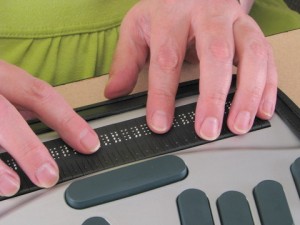Training Resources
Faith communities include many compassionate people who genuinely care and want to include persons with disabilities. Often the greatest barrier preventing these folks from truly welcoming new persons is the simple “fear factor.” Many people are simply afraid. “I don’t know what to say.” “I don’t know what to do.” “I am not trained as a special education teacher or a nursing assistant, etc.”
Many times, simple awareness-raising and training resources can help people overcome such fears. Some initial reading combined with hands-on experience can often make a huge difference in how supportive a congregation becomes toward persons with disabilities. Below are some particularly useful resources for faith congregations. See also the Awareness page.
This Training page focuses on training persons to work with persons with disabilities. The Education page focuses on educational resources for persons with disabilities that affect the mind (intellectual, developmental, autistic, psychiatric).
A new initiative in which many congregations and persons within those congregations can participate is in building networks for persons with disabilities to gain employment in the community. See below for a special resource in this area.
General Training
CCFH Ministries
Christian Church Foundation for the Handicapped (CCFH) seeks to enable others through training, resources, and encouragement to effectively minister with persons with disabilities. They provide educational resources in the form of interactive and video-based training platforms, books, pamphlets, and blogs. Many of the resources require a membership to access.
Challenging Behaviors
Persons with developmental disabilities, autism, and mental illness sometimes exhibit behaviors that other persons find challenging. Welcoming such persons with love and acceptance is often enhanced by greater understanding and training.
Gentle Teaching
John McGee’s principles have found warm acceptance among persons who advocate a community-based, non-violent, non-aversive approach for relating to persons with challenging behaviors. McGee’s approach is particularly adaptable to family and educational settings and seeks to enable persons with many fears and much pain to experience safety, acceptance, and love. The website has a wealth of material including books and presentations, some of which are available free for downloading.
Greeters and Ushers
Greeters and ushers provide a crucial ministry in many faith congregations. Their attitudes and actions often set the tone for whether families and persons with disabilities feel welcomed or rejected. The United Methodist Church provides the following resource: “On Greeting Persons With Disabilities: A Suggestion Manual for Ushers and Greeters”
Putting Faith to Work
 Many persons with disabilities have difficulty finding meaningful employment in the community. At the same time, religious communities often have a wealth of resources and networks to help others find meaningful employment.
Many persons with disabilities have difficulty finding meaningful employment in the community. At the same time, religious communities often have a wealth of resources and networks to help others find meaningful employment.
Several university centers for disabilities have initiated an effort through the Collaborative on Faith and Disabilities to help congregations connect their members and friends to jobs for persons with disabilities.
If you want to discover more, visit the Putting Faith to Work website.
You can also order the workbook Putting Faith To Work: A Guide for Congregations and Communities through CAN for only $10 post paid. In doing so, you will become a CAN subscriber for one year with login privileges.
Go to Membership Page and choose Subscriber Special!



